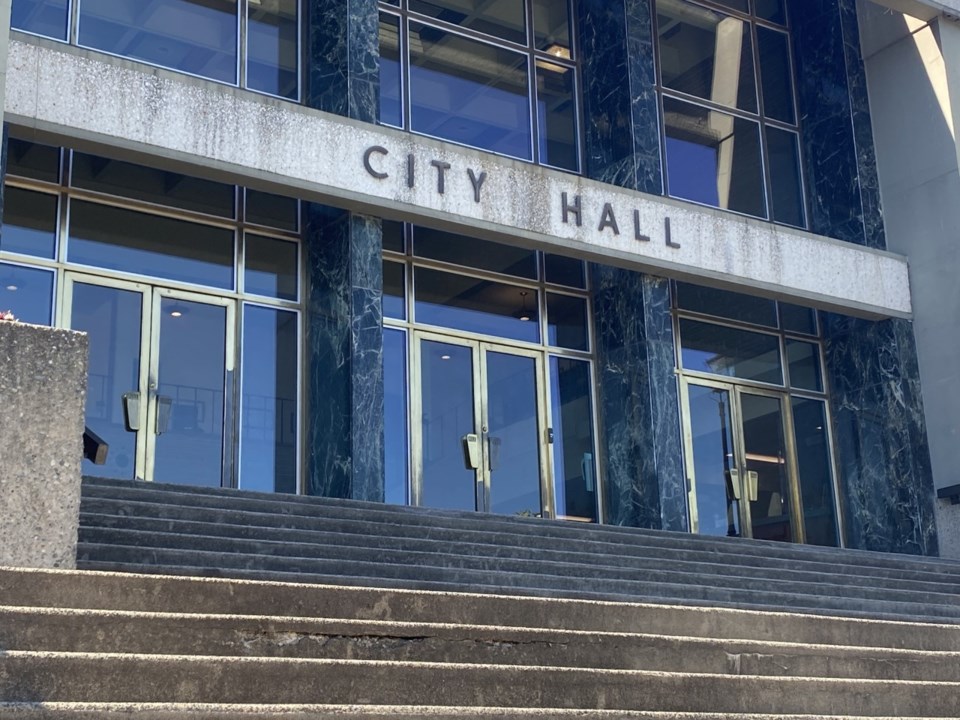New Westminster has avoided becoming the first city in the region to limit council members to presenting one motion at a meeting.
At the Jan. 30 meeting, council approved a motion from councillors Daniel Fontaine and Paul Minhas to report back on the way the council procedure bylaw had been interpreted by the previous council and how it’s being handled by the current council. Since the new council was sworn after the October 2022 election, motions are presented to council at one meeting and considered at the following meeting; the previous council dealt with motions without requiring advance notice.
A report to council stated the City of New Westminster is challenged by “unprecedented” staff vacancies. As a result, staff had recommended that the number of notice of motions introduced at each council meeting be limited to one per council member, as this would provide staff with adequate time to process the notice of motions within the allocated timeframe.
Fontaine expressed concern that there had been a “complete reformation” around the issue of notice of motions, compared to the motion he’d put forward on Jan. 30.
Lisa Spitale, the city’s chief administrative officer, said staff felt it was important to show how notices of motions impact staff’s work plan. She said staff are struggling with the amount of time it takes to deal with the notice of motions.
Fontaine expressed concern that if council approved the policy it would become the only city that limits elected officials to one motion per meeting.
“A motion is an idea. A motion is a directive. A motion is part of leadership,” he said. “We are going to be restricted to one motion per council meeting.”
Fontaine said Community First New West has a majority on council, so if its members don’t like motions being put forward by New West Progressive councillors (Fontaine and Minhas), they can vote against them.
“That's the way democracy works,” he said.
If council approved the policy, Fontaine said New Westminster would be a leader in anti-democratic measures.
Staffing impacts
Coun. Tasha Henderson said the policy aligns with the conversations council has had about constraints with staffing resources.
“Staff work plans are impacted by every motion,” she said.
Speaking “as someone who brought a fair number of motions last term”, Coun. Nadine Nakagawa said motions are not the only way to get work done at council, as there is committee work, task force work and other ways to provide input.
“I do support this. I don't think that this is undemocratic,” she said. “I think this is streamlining. And I think this has been respectful to staff work plans.”
If every council member brought forward one notice of motion, Nakagawa said that would be seven notices of motions at each meeting.
“That is plenty of new ideas we are bringing forward,” she said.
Mayor Patrick Johnstone said council has a role in managing the workload of the people who work at city hall. He noted that staff have to be prepared to answer questions related to every motion brought forward as a notice of notice, so there is a “significant impact” on their workload to do that work.
“To imply that a notice of motion is the only way that members of council can bring ideas before this body … or carry forward the wishes of the constituents who elected us is a gross misstatement of what this job is and what our role in this job is,” he said. “It is one of many different ways that council can influence the policy and the direction of the city, and do it in a way and represent the interests of residents in the city.”
Johnstone said council can’t simply vote resolutions down and be done with them, as staff have had to do the work to prepare the motions.
“We want motions to be considered around this table,” he said. “We want them to be heard.”
Given that the policy would be something council would be operating on for the next four years, Fontaine said he thinks it’s important that council reach a unanimous position on the policy. He suggested council discuss it further to work it out.
Spitale said staff and council could continue the discussion in a collaborative workshop process, with the understanding that council consider the limitations on staff.
“I do have the condition that staff resources are front and centre because I cannot in good faith have this discussion without recognizing that our clerks department is 40 per cent below pace,” she said. “I simply cannot, ethically.”
Council unanimously supported a motion to table the report.




